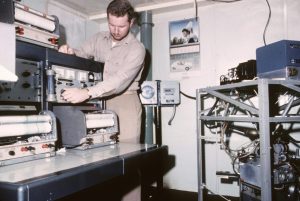The Psychological Foundations of Intellectual Exploration
The quest for knowledge and understanding is an intrinsic part of the human experience. Many of us are driven by a desire to explore and uncover new ideas, theories, and concepts. This innate curiosity has led to some of the most groundbreaking discoveries and innovations throughout history. But what lies at the core of this enigmatic drive to learn and discover? In this article, we will delve into the psychological foundations of intellectual exploration and explore the driving forces behind our insatiable thirst for knowledge.
The Roots of Curiosity
From the moment we are born, we are constantly seeking to make sense of the world around us. Our brains are wired to absorb and process information, constantly seeking new stimuli to satisfy our curiosity. This innate drive for exploration is evident in children – constantly asking “why?” and eagerly exploring their surroundings. As we grow older, this drive remains, but often becomes suppressed by societal norms and expectations.
The Role of Intrinsic Motivation
At the core of intellectual exploration lies the concept of intrinsic motivation. In contrast to extrinsic motivation, which stems from external rewards such as money or recognition, intrinsic motivation is driven by internal factors such as curiosity, enjoyment, and personal growth. This type of motivation is often the key driver behind our desire to learn and explore new ideas.
The Power of Cognitive Dissonance
Cognitive dissonance, the discomfort we feel when our beliefs and actions are contradictory, can also be a powerful motivator for intellectual exploration. When we encounter new information that challenges our existing beliefs, we experience cognitive dissonance, which compels us to seek out new information in an attempt to resolve the discrepancy. As a result, we are driven to expand our knowledge and understanding, often leading to personal growth and development.
The Impact of Self-Efficacy
Self-efficacy, or one’s belief in their ability to succeed, also plays a significant role in driving intellectual exploration. When we have a strong sense of self-efficacy, we are more likely to tackle new challenges and seek out new knowledge, even in the face of potential setbacks. On the other hand, a lack of self-efficacy can hinder our willingness to explore and take risks in our pursuit of knowledge.
The Influence of Curiosity on Creativity
Intellectual exploration not only leads to the acquisition of knowledge but can also foster creativity. When we are curious and actively seeking new information, we are more likely to make innovative connections between seemingly unrelated ideas. As a result, our curiosity can fuel our creativity and lead to groundbreaking discoveries.
The Role of Growth Mindset in Intellectual Exploration
Lastly, having a growth mindset, the belief that our abilities and intelligence can be developed, can be a significant driver of intellectual exploration. A growth mindset encourages us to view challenges as opportunities for growth and development, rather than roadblocks. As a result, individuals with a growth mindset are more likely to engage in intellectual exploration and push themselves to acquire new knowledge and skills.
In Conclusion
In summary, the psychological foundations of intellectual exploration are complex, but ultimately rooted in our innate drive for knowledge and understanding. Factors such as intrinsic motivation, cognitive dissonance, self-efficacy, curiosity, and growth mindset all play significant roles in driving our desire to explore and expand our understanding of the world. By understanding these underlying psychological motivators, we can harness their power to fuel our intellectual exploration and continue to push the boundaries of what is possible.










